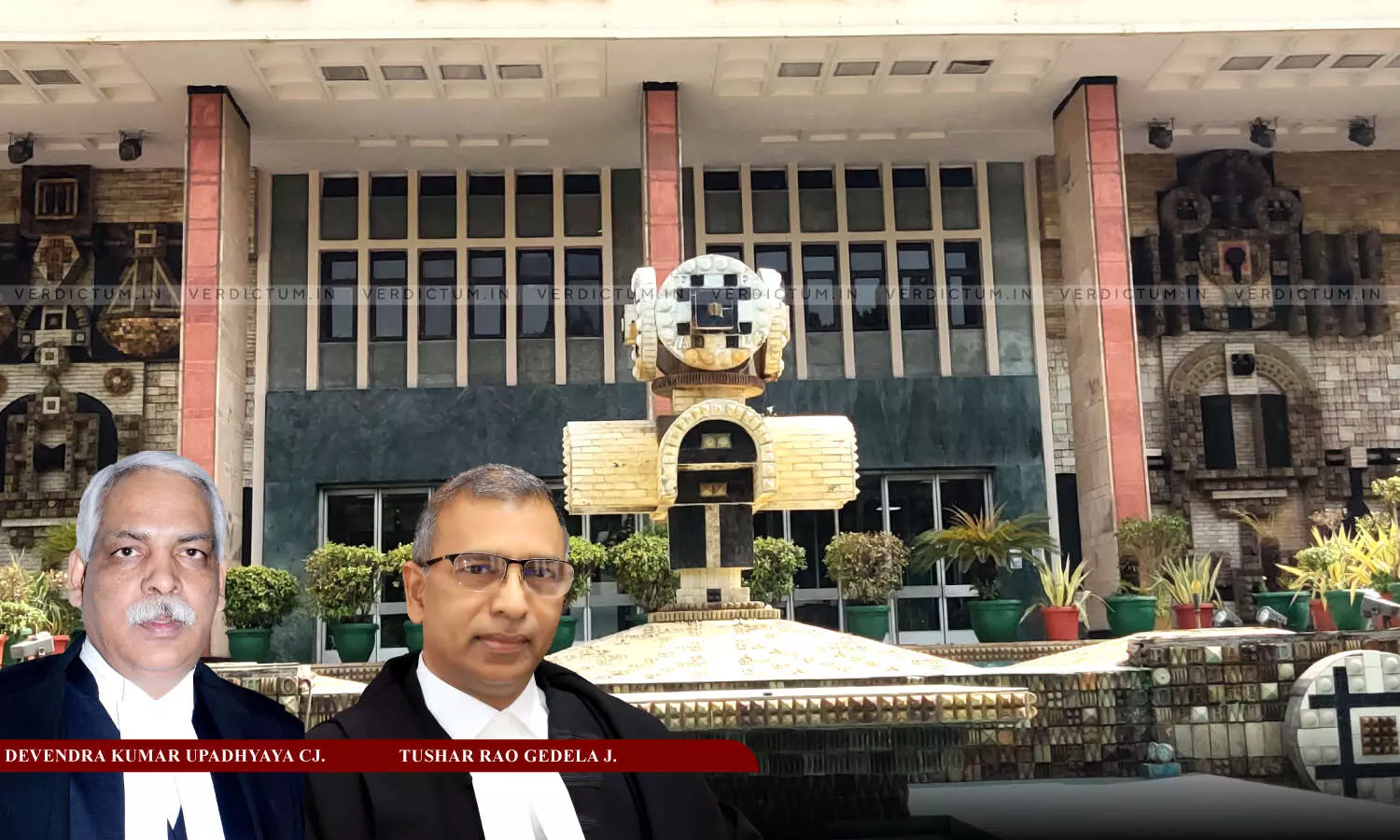
Chief Justice Devendra Kumar Upadhyaya, Justice Tushar Rao Gedela, Delhi High Court
Advocate Not Duty-Bound To Verify Veracity Of Client’s Instructions: Delhi High Court Upholds Dismissal Of Complaint Against Lawyers
 |
|The Letters Patent Appeal filed before the Delhi High Court challenged the judgment of the Single Judge whereby the writ petition challenging the orders of the BCD and BCI had been dismissed.
While upholding the orders passed by the Bar Council of Delhi, Bar Council of India and a Single Judge Bench whereby the complaint against three practising lawyers was dismissed, the Delhi High Court has held that it is not an Advocate’s duty to verify the truthfulness or veracity of the instructions given to him by the client.
The Letters Patent Appeal before the High Court was instituted under Clause X of Letters Patent, challenging the judgment of the Single Judge whereby the writ petition challenging the order passed by the Bar Council of Delhi (BCD) and Bar Council of India (BCI) had been dismissed.
The Division Bench of Chief Justice Devendra Kumar Upadhyaya and Justice Tushar Rao Gedela stated, “We may also record that an Advocate is bound by the instructions given to him by his client and it does not form part of his duty to verify the truthfulness or veracity of such instructions especially for the reason that the assertions made by the parties before the Court in the form of pleadings or setting up a case are to be decided by the learned Court concerned in the proceedings and not by the lawyers representing the respective parties.”
The Appellant appeared in person while Central Govt. Standing Counsel Bhagvan Swarup Shukla represented the Respondents.
Factual Background
The BCD had dismissed a complaint filed by the appellant against three practising lawyers (respondents), on the ground that the appellant in the complaint had failed to establish any professional relationship between himself and the respondents. The BCD further opined that the veracity of the allegations in the complaint in the matter filed against the appellant under Section 138 of the Negotiable Instruments Act, 1881, was to be decided by the Court, and, accordingly, no misconduct was made out against the respondent lawyers.
The Revision Petition preferred by the appellant before the BCI against this order was also dismissed, holding that no case of any ‘professional misconduct’ was made out against the respondents. The two orders passed by BCD and BCI, were challenged before the Single Judge in the writ petition filed by the appellant, which was dismissed. It was in such circumstances that the matter reached the Division Bench of the High Court.
Reasoning
The Bench noted that the observations of the Single Judge that the Advocates of the adversary of the appellant did not owe any fiduciary duty to the appellant, nor was there any professional relationship between them.
The Bench found that, based on the contents of the complaint lodged by the appellant against the respondents, no case of professional misconduct was made out. Further, if the complaint made by the appellant was to be acted upon and proceeded with for taking action against the respondents, the same would have resulted in undermining the duties which an Advocate owes to his client.
Thus, finding no irregularity or illegality in the judgment of the Single Judge, the Bench dismissed the Letters Patent Appeal.
Cause Title: Chand Mehra v. Union of India & Ors. (Neutral Citation: 2025:DHC:7102-DB)
Appearance
Appellant: Appellant in person
Respondent: Central Govt. Standing Counsel Bhagvan Swarup Shukla, Advocate Vinay Kumar